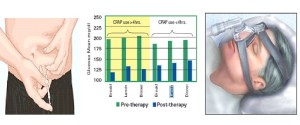Diabetes & Sleep Apnea
Apr. 11, 2016
Are you diagnosed with diabetes and sleep apnea and wondering if these two are linked? If so, this blog answers your questions.
Sleep apnea and diabetes are strongly associated with one another. Clinical research shows that approximately 50% type 2 diabetics have also been diagnosed with sleep apnea.
Researchers in Toronto’s Sunnybrook Hospital took healthy volunteers and sleep deprived them in the laboratory, and they showed as if they were in the pre-diabetic state after sleep deprivation. This was only after one week of sleep deprivation and it wasn’t total sleep deprivation,it was four and a half hours in bed. Sleep deprivation, short sleep duration, increases your risk for type 2 diabetes.
Research indicates that sleep apnea is independently associated with insulin resistance. However, it is not clear what mechanisms of action are responsible. Researchers are evaluating a few theories such as:
- Not getting to or staying in REM (deepest) stage of sleep, which is the time for hormones to get regulated
- Accumulation of sleep debt due to sleep fragmentation
- Recurrent hypoxia (low oxygen level) leads to the impairment in
homeostasis (lack of maintenance of the blood glucose equilibrium), leading to insulin resistance - Elevated levels of the hormone cortisol, which is released under conditions of stress in the body, can contribute to increased energy production and sympathetic nervous activity, leading to excessive blood sugar levels and reduced insulin sensitivity
- Increased sympathetic nervous activity cause the release of glucose from the muscles into the bloodstream to activate an arousal from sleep, and result in residual circulating glucose in blood
With type 2 diabetics who have sleep apnea, CPAP usage can improve their glucose control. Within 48 hours, significant improvements have been demonstrated in insulin sensitivity using CPAP therapy. After-meal blood glucose levels can be reduced with compliant CPAP therapy, which suggests that sustained CPAP use may be an important therapy for diabetes patients with sleep apnea.
One of the goals of the clinicians at CanSleep services is to insure patients pay extra close attention to the risk factors for diabetes if they have sleep apnea, and making sure they are doing all they can to ensure healthy sleep if patients happen to be diabetic.
By Bahareh Ezzati (BSc, CPhT, RRT)






